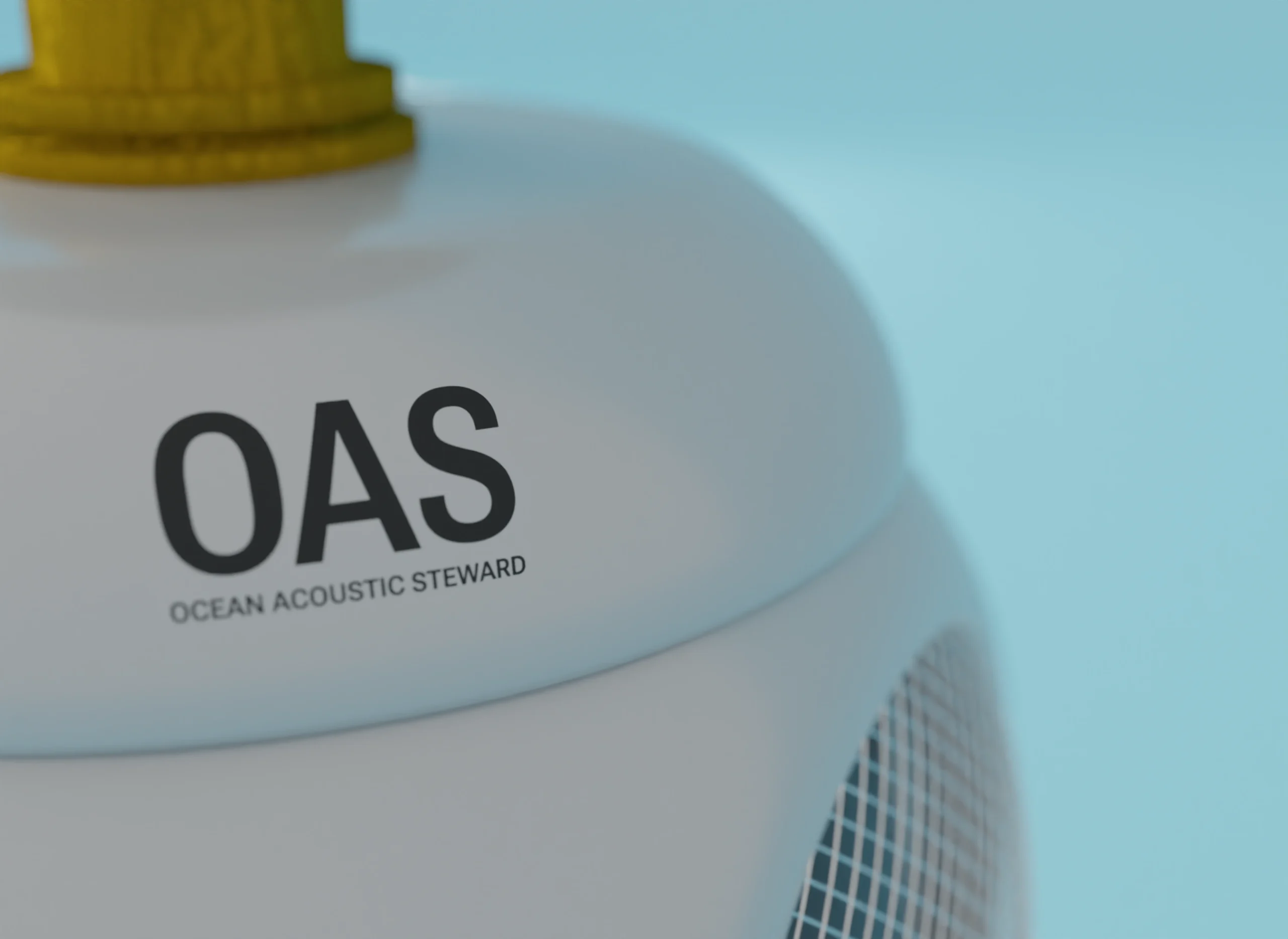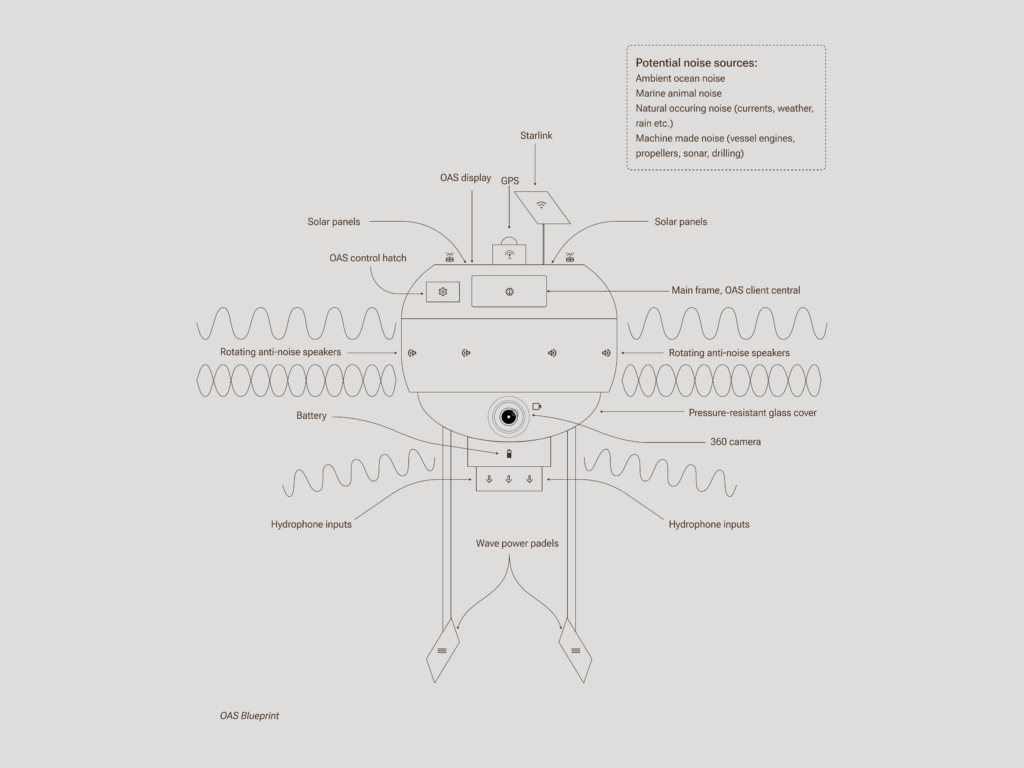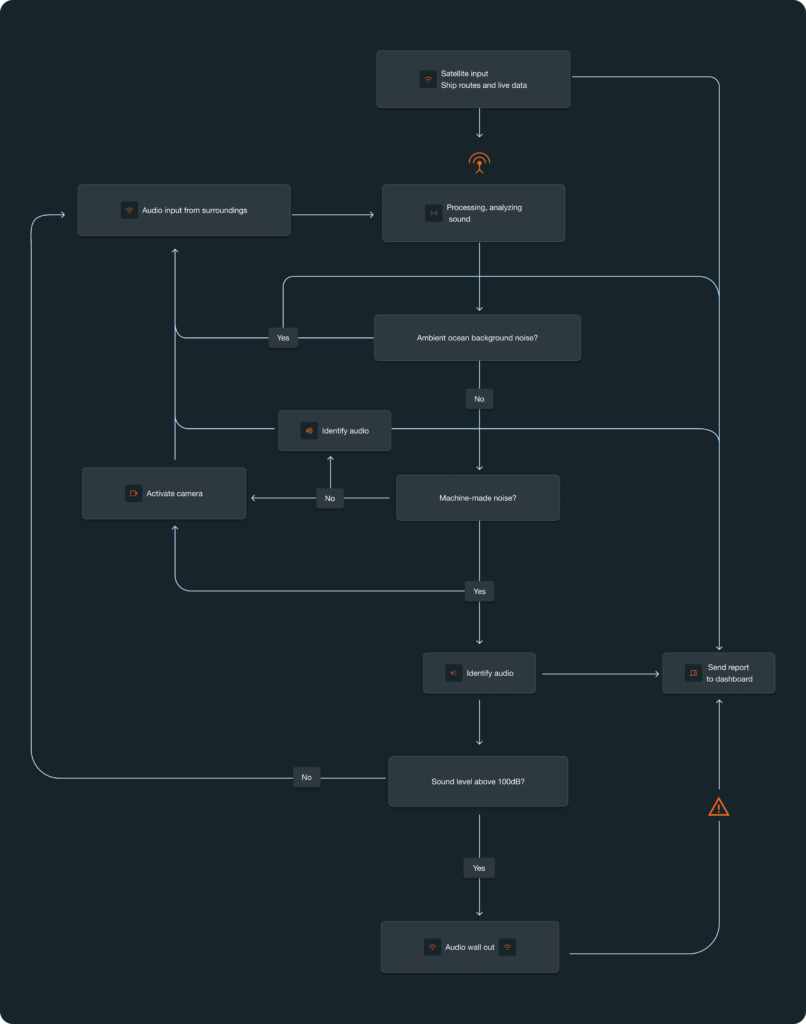This concept study investigates the potential of using artificial intelligence and targeted sound waves to mitigate noise pollution in sensitive marine habitats. The project centers on an autonomous underwater agent capable of detecting and neutralizing harmful noise from sources like ships and industrial sites, aiming to create quieter and healthier environments for marine ecosystems.

In response to increasing concerns about the impact of noise pollution on marine life, this project explores the feasibility of an intelligent agent equipped with advanced sensors and actuators to selectively reduce harmful noise. The agent leverages targeted sound waves, directed precisely at sources of underwater noise, to neutralize pollution without affecting the broader marine soundscape.
Utilizing machine learning, the agent not only recognizes specific sounds but learns to identify patterns that differentiate types of noise, such as distinguishing marine mammal calls from industrial sounds. This enables it to respond dynamically to environmental changes, providing ongoing noise reduction in real time. Throughout the study, ethical and sustainable principles guided the exploration of AI’s role in ecosystem preservation, ensuring that data collected contributes valuable insights for future conservation efforts.
By monitoring a continuous data stream, the agent autonomously adjusts its actions to achieve its primary objective: reducing noise to create protected, noise-free zones in sensitive habitats. Through adaptive learning, it becomes more effective over time, progressively refining its ability to recognize and neutralize disruptive sounds. This approach not only demonstrates the potential of AI for ecological benefit but also emphasizes the role of intelligent systems in fostering more sustainable human interactions with natural ecosystems.
Utilizing machine learning, the agent not only recognizes specific sounds but learns to identify patterns that differentiate types of noise, such as distinguishing marine mammal calls from industrial sounds. This enables it to respond dynamically to environmental changes, providing ongoing noise reduction in real time. Throughout the study, ethical and sustainable principles guided the exploration of AI’s role in ecosystem preservation, ensuring that data collected contributes valuable insights for future conservation efforts.
By monitoring a continuous data stream, the agent autonomously adjusts its actions to achieve its primary objective: reducing noise to create protected, noise-free zones in sensitive habitats. Through adaptive learning, it becomes more effective over time, progressively refining its ability to recognize and neutralize disruptive sounds. This approach not only demonstrates the potential of AI for ecological benefit but also emphasizes the role of intelligent systems in fostering more sustainable human interactions with natural ecosystems.







